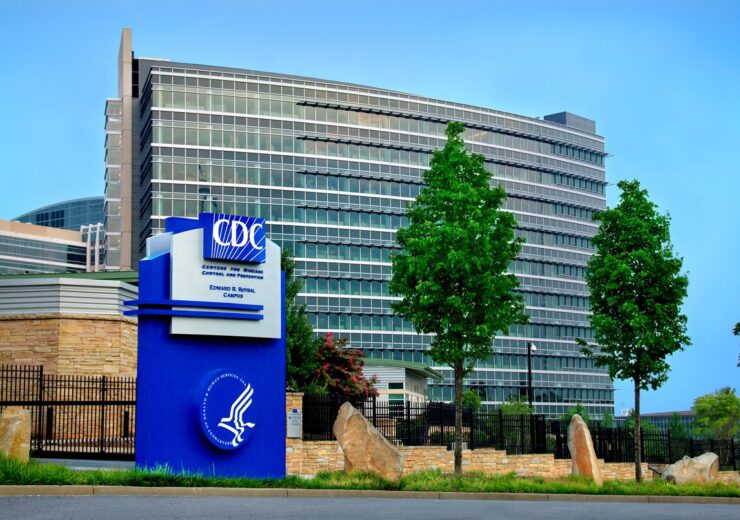In two different votes, the advisory committee agreed that individuals of 60 years and more can get the RSV shots after discussing with their healthcare providers

A view of CDC's Roybal campus in Atlanta, Georgia, US. (Credit: James Gathany, Centers for Disease Control and Prevention on Unsplash)
The US Centres for Disease Control and Prevention’s (CDC) Advisory Committee on Immunisation Practices (ACIP) has reportedly recommended the use of new vaccines from Pfizer and GSK for respiratory syncytial virus (RSV) infections in older adults in the US.
In two different votes, the CDC’s advisory committee agreed that individuals of 60 years and more can get the RSV shots after discussing with their healthcare providers, reported Reuters.
Both Pfizer and GSK discussed data at a meeting on whether one vaccination could offer more effective protection against RSV than an annual shot.
In older individuals, the effectiveness of Pfizer’s vaccine in preventing lower respiratory tract disease with three or more symptoms decreased from 88.9% at the end of the first season to 78.6% through the middle of the second.
In the same age group, the efficacy for less severe forms of the disease dropped to 48.9% from around 65%.
When older persons received GSK’s vaccination, the effectiveness in preventing serious disease dropped to 84.6% by the middle of the second RSV season from around 94% at the end of the first.
The vaccine’s effectiveness in preventing lower respiratory tract disease decreased to 77.3% from 82.6% at the conclusion of the first season in older persons.
ACIP member Helen Talbot has been quoted by the publication, as saying: “Those who are at high risk for disease and for high risk for hospitalizations and death were actually not included in the trials.
“The patient population that participated in the study were younger and healthier and had fewer comorbid conditions, were not immunocompromised and were not living in nursing homes.”
According to the news agency, the recommendation was not so strong as some of the committee members were concerned that there was insufficient information regarding the effectiveness of the vaccines in those aged 75 and over and other high-risk groups. Instead, the members preferred a broader recommendation.
The recommendation needs to be approved by the director of the CDC before the vaccines are made available. Both pharmaceutical companies stated that they anticipate being able to deliver the doses before the upcoming RSV season.
The first RSV vaccine, marketed by GSK under the name Arexvy, and Pfizer’s Abrysvo were both approved by the US Food and Drug Administration (FDA) last month for protecting patients 60 years of age and older against the virus’s lower respiratory tract sickness.
